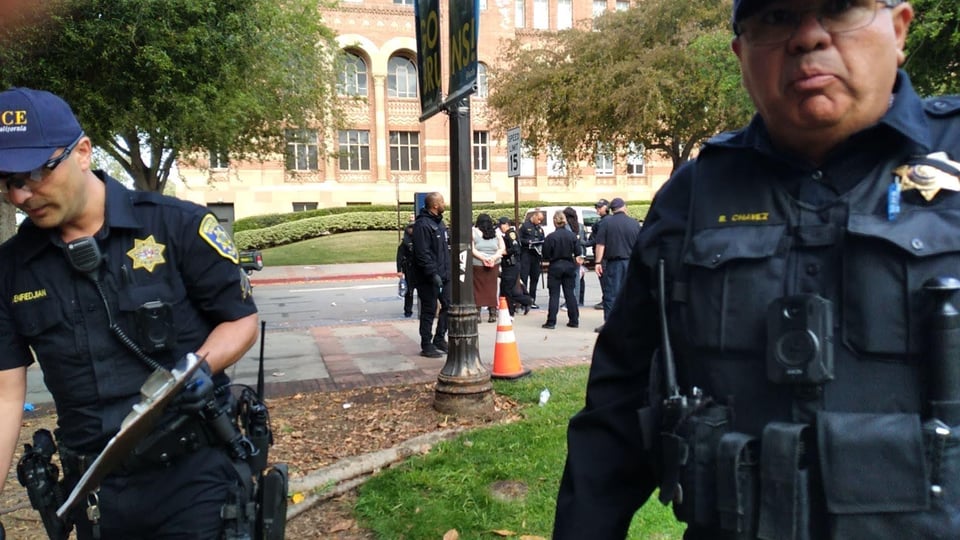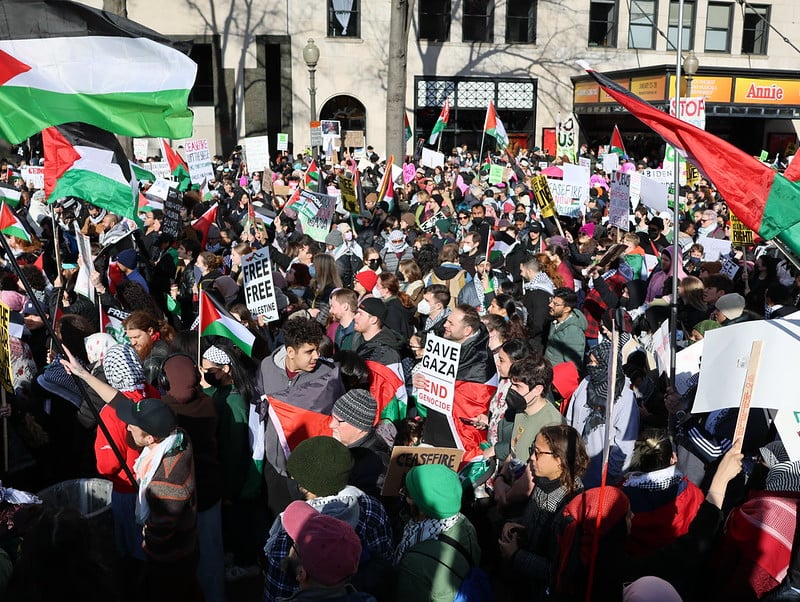Militarized Police Aren’t the Answer to Gaza Protests

I was half-tempted to make this week’s newsletter a recap of the Kendrick Lamar/Drake beef, but I decided to keep that conversation in the DMs for now.
Instead, I want to briefly pick up a thread from last week about the anti-genocide protests unfolding in the US. The continued protests and the institutional responses demonstrate how little regard many school administrators have for the safety of their students and their campuses.
Disruptive campus protests are nothing new. But if the priority is the safety of students, militarized police are the dead last thing one should call on. Police repression of protests is like pouring water on a grease fire: the authoritarian response escalates tensions and as we’ve seen this week causes protests to spread further. According to the Washington Post, the protests have now spread to more than 150 campuses nationwide.

Despite all the hand-wringing and gnashing of teeth over the demonstrations, the protesters on lawns and in school offices are not a threat to themselves nor to others. However, they face real threats from law enforcement and counter-protesting vigilantes (but we never seem to talk about that).
For example, in the midst of protests at my alma mater, the Evergreen State College, in 2017 there was a right-wing backlash of bomb and death threats directed at students on the campus. A notable accelerant of the backlash was a professor who went on a right-wing media tour, including the Tucker Carlson Show, condemning the student body at the university. What followed was a wave of bomb threats and specific threats to the lives of students. His actions were those of an attention seeking coward. At the time, I wrote elsewhere, “there’s nothing in the world that would make me go on TV and deride my students” rather than having a sit-down conversation with them.
The aforementioned accelerant has since left the school and become a vaccine skeptic, darling of the three-hour-long bro podcast set, and a purveyor of pseudoscience and AIDS denialism. The protests and backlash he triggered led to a temporary closure of the campus and graduation was moved to thirty miles away at a local minor league baseball park.
The students posed no danger, the reaction to their protests did.
It feels similar today: I can’t fathom calling riot police on my own students, for protesting a war that’s killed 35,000 people. The arrests and assaults carried out by police and vigilantes across the country are more violent and disruptive than the protests, even the most egregious ones, being carried out by the students.
Here’s a quick survey of incidents around the country that bear this out:
Philadelphia - Man pours unidentified liquid on protestors’ tents and their supplies
New York - Students journalists assaulted and obstructed
New York - Officer fires gun while clearing Columbia building
Los Angeles - At least five students shot in the head with rubber bullets by police
Madison - UW-Madison Professor targeted by police, bloodied
Los Angeles - Counter protestors throw fireworks into encampments
The introduction of militarized police and attacks from counter-protesters are escalatory. Universities are supposed to be institutions of learning, not places one goes to be gassed and beaten by a cop for dissenting.
Contra to the examples above, Brown took a de-escalatory approach. Rather than having the protestors cleared out by militarized police, the school administration negotiated with them and reached a deal:
Students agreed to end the encampment by Tuesday evening and to "refrain from further actions that would violate Brown's conduct code through the end of the academic year," including during events like commencement and reunion weekend, the university said.
In return, the students will be allowed to meet with the university's governing body in May to present their argument for divesting Brown's endowment from "companies enabling and profiting from the genocide in Gaza," per the agreement. The matter will be brought to a vote in October.
Look at that!
A similar deal was struck at Evergreen.
Protesters at The Evergreen State College in Olympia agreed to remove their week-old encampment Tuesday night after striking a deal with administrators that includes the school publicly calling for a cease-fire in the Israel-Hamas war and exploring divestment from companies that profit from “the occupation of Palestinian territories.”
Three school administrators and four members of the Evergreen Gaza Solidarity Encampment signed a memorandum of understanding at 9:45 p.m. Tuesday after five hours of negotiating inside Evans Hall.
Sometimes justice and order are at odds.
Disruptive protests are a valid form of speech, older than the country itself. The “if you can’t beat them, literally beat them” approach being undertaken at many universities goes against all the principles the country claims to stand for.
Again, I can’t believe I have to explain this.